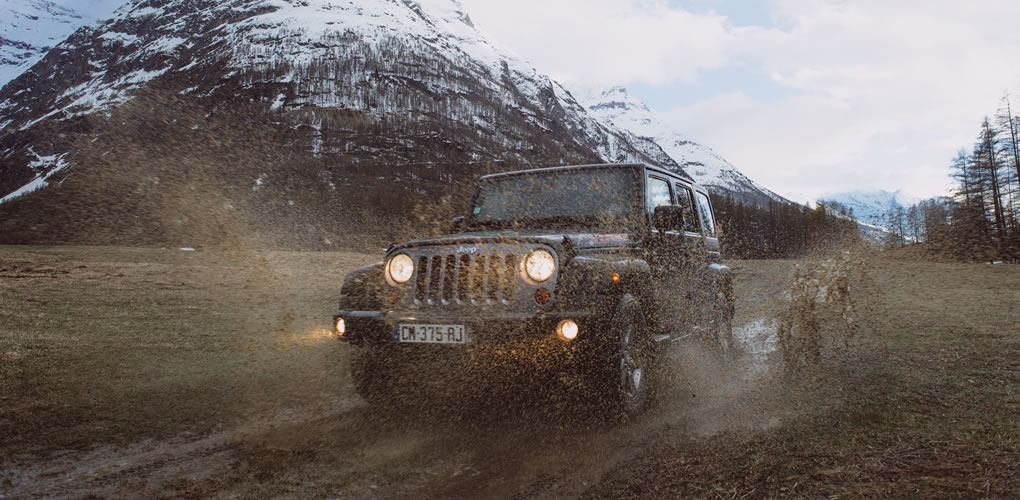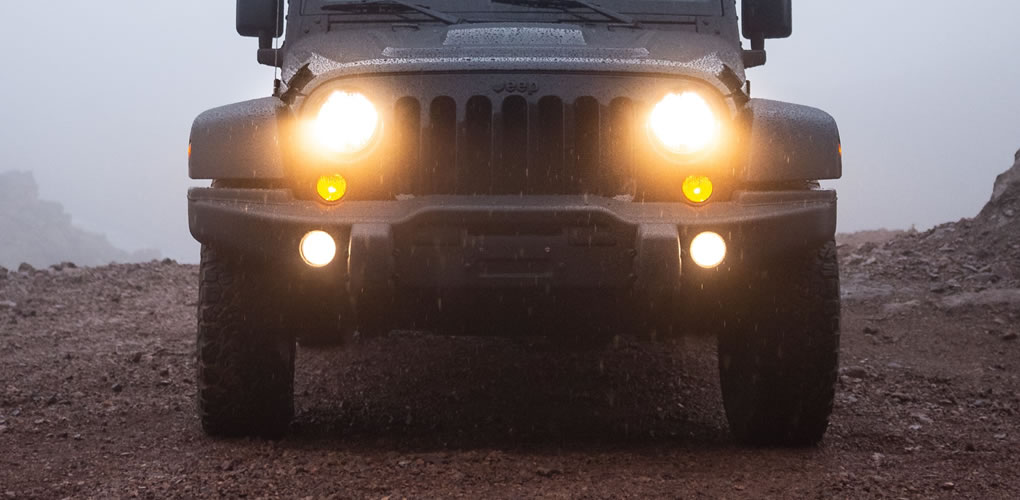Jeep Roof Bars from the Peter Bowman Towing Centre
6 Tips to Help you Get Started on Your First Off-Road Adventure
Are you thinking about taking your Jeep off road? Off Road driving can be exhilarating and fun but if you’re not sure where to begin, this adventure sport can easily feel intimidating. In this article we go over six tips to help new off-roaders get started safely.
Decide Whether you Want to Use Your Own Vehicle or Hire
If you’re a Jeep owner and want to try off-roading, taking your own Jeep off road sounds like a no brainer right? After all Jeeps are purpose-built exploring vehicles. However, even if you’re planning on taking it steady, any form of off-roading isn’t for those who are precious about their paintwork. Even on a beginner course, your Jeep will still endure a fair amount of mud and dirt. Thankfully most off road courses offer vehicle hire so you can still enjoy the thrill of the ride without having to worry about damaging your vehicle.
Consider an Off-Road Training Course
Off road training courses are designed to help new off road drivers get to grips with the unique driving style. There are many course types available, each tailored to build specific skills needs such as car handling, driving techniques and vehicle familiarisation. Training courses can be expensive but more often than not, drivers will gain the confidence needed to begin off-roading alone with only one session.
Join an Off-Roaders Group/Club
There are hundreds of off road clubs s the UK which can be joined an accessed both online and in person. Club memberships are often pretty cheap and sometimes even free. Clubs are ideal for beginners as new members are usually welcomed with a wealth of helpful information on getting started by existing members.
Research Your Route
Before you embark on your first off road adventure, you will first need to plan out where you’ll be going. While it is legal to drive your 4X4 on some public byways, as a beginner you are far better off starting out on a purpose-build course. Look for off road driving centres in your local area and book a time slot for a beginner-suitable course.
Most off road centres have a range of courses to try with varied terrain, each designed to suit a different experience level/driving style. If you aren’t sure which courses are suitable for beginners, contact the centre. They should be happy to offer advice to inexperienced drivers who aren’t sure of the best routes to try.

Photo by Philippe Toupet on Unsplash
Join the Green Lane Association (GLASS)
Unfortunately the number of green lanes and unclassified roads across the UK are slowly diminishing, which is bad news for those who like to drive off road. GLASS is a non-profit organisation dedicated to protecting unsurfaced roads. There are many benefits to joining the GLASS Association as someone who is interested in off-roading. For example as you become more accustom to off road driving, you may want to explore further afield and try it outside of a driving centre. The Green Lane association offers a definitive guide of safe and legal off-road driving routes. GLASS reps can also offer you advice on a particular route or even guide you on your first drive. GLASS also offer a range of member benefits including expert advice, exclusive information access and even a range of discounts in stores across the UK.

Photo by Wesley Tingey on Unsplash
Prepare Your Vehicle
If you are planning on taking your own vehicle off-road then you will first need to make sure it is suited to this style of driving. Most 4X4s should already be off-road capable but it won’t hurt to make a few modifications/inspections to ensure the best off road driving experience possible.
Tyres
You may want to invest in a good set of off-road tyres suited to the type of terrain you’ll be driving on. While the legal tyre-tread limit is 1.6mm this isn’t sufficient for most styles of off-roading. Depending on the terrain the tyre is designed for (Light, highway, mud and all) the tread depth will differ. Mytyres.co.uk allows you to search for tyres by terrain or car model.
It’s also important that your tyres are inflated to suit the terrain too. Soft sand and mud may require a lower tyre pressure as to increase the tyres footprint, while rock climbing may require a higher pressure. Remember to never inflate above or below the manufactures advised limits or exceed the max permissible load.
Engine
Just as you would check your engine before a long car journey, you will need to check it before off road driving too. Check your vehicle’s fluid levels and make sure it is up to date with servicing and MOT. Even if your car has been serviced the same year, you may still want to take it to your garage for a partial service to determine everything is in good working order before testing it on unfamiliar terrain.
Suspension
Altering the suspension of your 4x4 may not be necessary if you plan to take things steady, but if you really want to push your vehicle to the limits, upgrading the suspension may be a wise idea.
Wheel Alignment
Before taking your vehicle off-road, take it for a wheel alignment service to ensure the best possible handling. This is something that should be done every 12 months anyway however it only takes one pothole to jolt your wheels out of alignment, so it’s best to check them more regularly to avoid accidents and prevent possible further damage.

